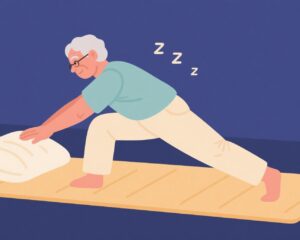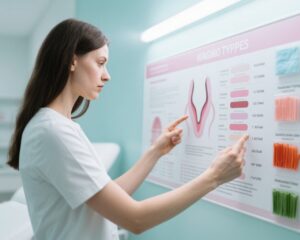Introduction
Sexual desire and satisfaction are important aspects of human wellbeing and intimate relationships. However, many women experience decreased sexual desire, often described as sexual coldness or hypoactive sexual desire disorder (HSDD). This condition is characterized by a persistent or recurrent deficiency or absence of sexual fantasies and desire for sexual activity, which causes distress or interpersonal difficulties. It is distinct from problems related to sexual pleasure or orgasm. Understanding the multifaceted causes of female sexual coldness is vital for de-stigmatization, appropriate clinical care, and improving quality of life for affected women.
What Does Female Sexual Coldness Mean?
Sexual coldness, or hypoactive sexual desire disorder, refers specifically to the lack or reduction of sexual desire, which differs from a lack of sexual pleasure or orgasmic function. Sexual coldness may occur without pleasure issues, or pleasure problems may be present without desire issues. Clinically, sexual coldness is divided into two subtypes: with or without diminished sexual attractiveness—a delineation that underscores the complexity of this condition.
Scientific and Clinical Evidence: Causes of Female Sexual Coldness
Sexual desire is influenced by an intricate interplay of psychological, biological, and social factors. The causes of female sexual coldness include:
1. Traditional Concepts of Mind-Body Interactions: In Traditional Chinese Medicine (TCM), sexual coldness is attributed to imbalances within key organs such as the heart, liver, spleen, and kidneys. Conditions like “qi” deficiency, emotional trauma, chronic illness leading to blood and energy deficits, and internal dampness or phlegm accumulation are believed to disrupt sexual desire. These holistic diagnostic frameworks classify symptoms into patterns such as Qi stagnation, phlegm obstruction, essence depletion, and blood and Qi deficiency.
2. Organic Causes: Chronic reproductive tract infections can reduce sexual desire by damaging the nervous system and causing endocrine imbalances, notably lowering circulating estrogen levels, essential for maintaining sexual function.
3. Medication Effects: Various medications can reduce libido, including antihistamines, cannabis, phenytoin, reserpine, anxiolytics (e.g., nitrazepam), and antiandrogens. Prolonged use may adversely affect sexual function.
4. Early Onset of Sexual Activity: Initiating sexual activity too early may psychologically or physically impact long-term sexual health, potentially contributing to sexual coldness.
5. Fatigue and Health Status: Both physical exhaustion and poor mental health can dampen libido. A fulfilling sexual life generally depends on emotional wellbeing and energetic vitality.
6. Inappropriate Contraceptive Methods: Some contraceptives can lead to hormonal changes that affect sexual desire negatively.
7. Mental and Emotional Factors: Psychological states are strong determinants of sexual desire. Experiences of extreme sadness, fear, depression, or loss can cause acute or chronic reductions in libido.
8. Nutritional Status: Sexual desire requires appropriate nutritional support; deficiencies in essential nutrients can impair libido.
9. Alcohol and Smoking: Chronic smoking increases the risk of sexual dysfunction, including erectile problems in men and reduced desire in women. Long-term excessive alcohol consumption similarly leads to diminished sexual function.
10. Chronic Medication Use: Long-term consumption of certain drugs may contribute to decreased sexual function.
11. Living Environment: Residing in chaotic, poorly ventilated, overcrowded surroundings can adversely affect physical and mental health, potentially impairing sexual desire.
Misconceptions and Harmful Behaviors
There are several misconceptions surrounding female sexual coldness. For example, some believe that loss of sexual desire is purely a psychological failure or a relationship issue. Others inaccurately equate sexual coldness solely with lack of pleasure. However, it is important to recognize the biological, psychological, and social complexity that contributes to sexual desire disorders. Fear, stigma, and misinformation may prevent women from seeking care. Early sexual initiation is sometimes thought to be entirely harmful, but its effects vary depending on emotional and physical context. Medication is sometimes stopped abruptly without medical guidance due to fears of sexual side effects, which can worsen overall health. Misuse of contraception and neglecting nutritional or mental health factors are also commonplace mistakes.
Correct Health Practices and Practical Steps
Addressing female sexual coldness requires a holistic and individualized approach. Some effective strategies include:
– Medical Evaluation: Women experiencing low sexual desire should undergo comprehensive assessments to identify underlying medical, hormonal, or psychological causes.
– Medication Review: Consult healthcare providers to assess whether current medications might affect libido and explore alternatives.
– Psychological Support: Counseling, sex therapy, or psychiatric treatment can help manage emotional and mental health factors.
– Lifestyle Modifications: Adequate sleep, stress reduction, nutrition optimization, moderate exercise, and cessation of smoking and excess alcohol are critical.
– Relationship Communication: Open, honest discussions with partners about sexual needs and concerns often improve sexual satisfaction and desire.
– Mind-Body Therapies: Practices such as acupuncture, meditation, and traditional medicine approaches may contribute to restoring balance and sexual health in some individuals.
Expert Recommendations and Insights
Dr. Emily Harris, a clinical psychologist specializing in women’s sexuality, emphasizes the importance of destigmatizing sexual desire problems: “Sexual coldness is a common but complex issue, often misunderstood. It is crucial for both patients and clinicians to recognize it is not a moral failing or relationship fault but a health condition that deserves compassionate attention and evidence-based treatment.”
Dr. Mark Wilson, an endocrinologist, notes: “Hormonal interactions profoundly affect female sexual function. Evaluating estrogen, testosterone, thyroid function, and correcting imbalances must be part of a thorough workup.”
A Patient Scenario: Sarah’s Story
Sarah, a 35-year-old marketing manager, noticed a gradual decrease in her sexual desire over the past year. Despite being in a supportive relationship, she felt little interest in sexual activity and experienced guilt. After consulting her physician, Sarah underwent laboratory testing, revealing mild hypothyroidism. Adjusting her medication alongside counseling helped improve her mood and libido. Additionally, she adopted healthier sleep habits and reduced alcohol intake. Sarah’s case highlights the importance of multifactorial assessment and integrated care.
Conclusion
Female sexual coldness is a multifaceted issue influenced by biological, psychological, and environmental factors. Understanding its diverse causes enables effective management through medical, psychological, and lifestyle interventions. Overcoming stigma and promoting open conversation will empower women to seek help and regain fulfilling sexual lives. Continued research is needed to refine diagnostic tools and treatments tailored to individual needs.
References
1. Basson R. Female sexual dysfunction: revised and expanded definitions. CMAJ. 2005;172(10):1327-33.
2. Clayton AH. Hypoactive sexual desire disorder in women. Am J Psychiatry. 2012;169(8):804-11.
3. Davis SR et al. Androgens and female sexual function: a review. Horm Behav. 2005;48(2):355-67.
4. Kingsberg SA et al. Mental and physical health, medication, and sexual dysfunction in women. J Sex Med. 2013;10(5):1132-41.
5. Parish SJ, Clayton AH. Female sexual dysfunction: medical and psychosocial models. Fertil Steril. 2007;88(2):265-72.
6. World Health Organization. Sexual and reproductive health: Female sexual dysfunction. 2021. Available from: https://www.who.int/reproductivehealth/publications/female-sexual-dysfunction/en/
This article offers a well-rounded explanation for female sexual coldness, blending traditional views, modern science, and practical advice, and should interest both the general public and healthcare professionals.


